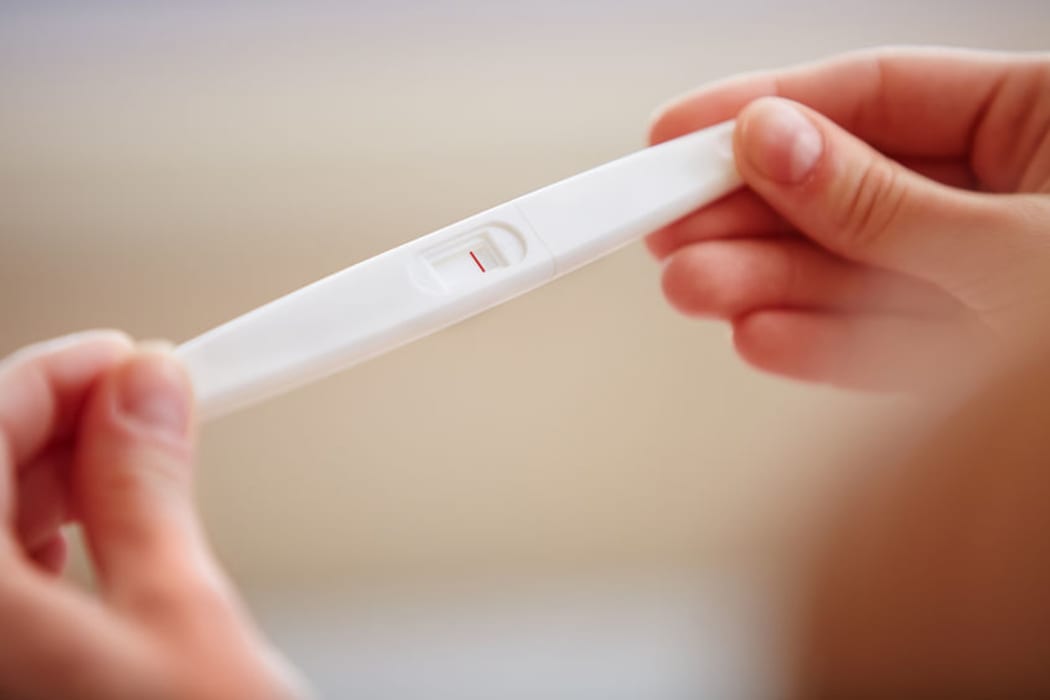This week Wellington writer David Cormack wrote a very personal piece titled, What to expect when you're not expecting.
The article was featured on the blog site The Ruminator and discusses the struggles he and his wife Kim have faced as they’ve attempted to conceive.

Photo: 123rf
Speaking to RNZ’s Jesse Mulligan, Cormack says he's made a point to talk about fertility issues as it’s an issue surrounded with secrecy, which a lot of people deal with on their own.
“We sort of have gone through it alone and it’s a pretty difficult thing to do.”
Cormack, who has also worked as a standup comedian, says they’ve tried to find the humour throughout their journey, but admits it can be difficult.
“It’s far harder on Kim than it has been on me, she’s had to take medication that has really messed with her hormones.
“Consequently things that once upon a time we laughed at, she would burst into tears over.”
But he says that will often result in her laughing at the tears, and the laughter is what has got them through.
To be referred to a specialist, a couple has to have been trying to have a baby for one year.
Cormack says he and his wife were eventually referred to Wellington Hospital, where they both had to go through a series of tests.
Those tests revealed Cormack’s wife had two uteri, instead of one, as well as endometriosis.
She began taking medication and they’ve been trying to conceive naturally for about a year.
“It’s really crushing because you go through this process where the sex becomes mechanical and it’s a really hard thing to have in a relationship, where that part of the relationship is changed.”
He says they would visit a specialist every three months to check hormone and ovulation levels were correct.
“And if that was OK then just go away and keep trying.
“It’s just an ongoing rinse and repeat of disappointment.”

David Cormack Photo: supplied
He says that has been followed by a monthly cycle of being let down.
Cormack and his wife have now moved on to IVF and are able to do so through the public system – but face a 12 to 14 month waitlist.
“When you factor that in to the three years that we’ve already been trying, then we’re kind of keen to get a wriggle on.”
They will also be trying a round of IVF privately, which he says is expensive and comes with no guarantees that it will work.
“The rates are about 50/50 so I view this as the most expensive coin toss that I’ve ever done in my life.”
He says while they’re really hopeful about the process, they’re also preparing themselves for the possibility it may not work.
The couple are at an age where many of their friends have children, which Cormack says makes social outings difficult.
“Obviously all the kids are there and we’re the couple there who don’t have kids and while most of our friends are aware that we’re trying and that it’s not a case of ‘ooh, when are you going to have kids?’ it’s still really difficult just to even see the kids.”
Cormack says while they’re really happy for their friends and their families, there is some bitterness towards the world.
That’s led to withdrawing from social events, because he says they just can’t bear to face it.
While people try to be supportive, Cormack says they can miss the mark with their choice of words.
“People say ‘oh, you know, don’t worry it’ll happen for you’ and well, actually you don’t know that.
“And ‘take advantage of the time you’ve got now because as soon as you have kids you won’t have any time at all’ and that’s difficult to hear because you’re kind of like, well actually, I’d probably give up all that time just to be successful.”
Cormack says the experience has made him realise how many films and televisions are geared towards being parents.
“One of the films we watched was Finding Dory, which is just a poor reflection on me because that’s about a fish trying to track down her parents and so I don’t know what I was thinking suggesting that one.”
Cormack says he’s received a number of supportive messages since publishing his blog post.
“It seems that people that have read it have got something out of it.
“We want to show those people that we’re not alone, that we’re all going through this process, those of us that have struggled with infertility and that’s really the driving force.”

